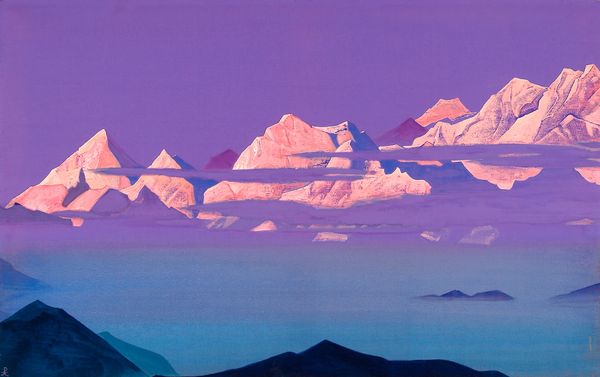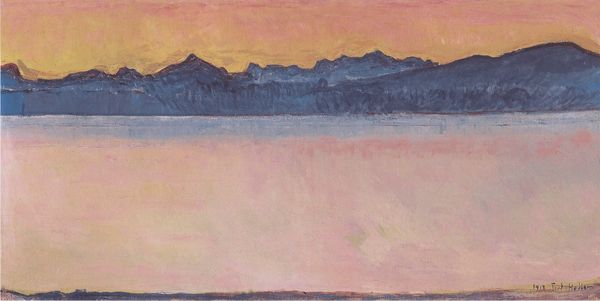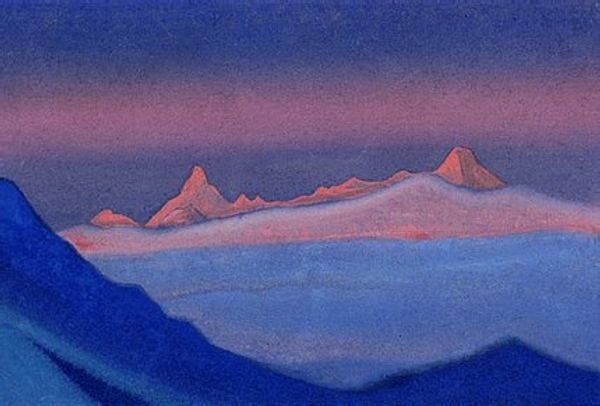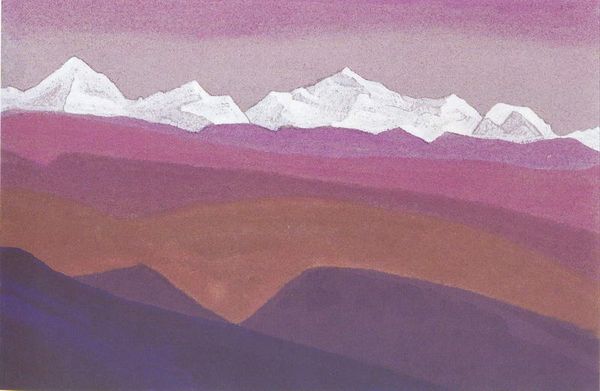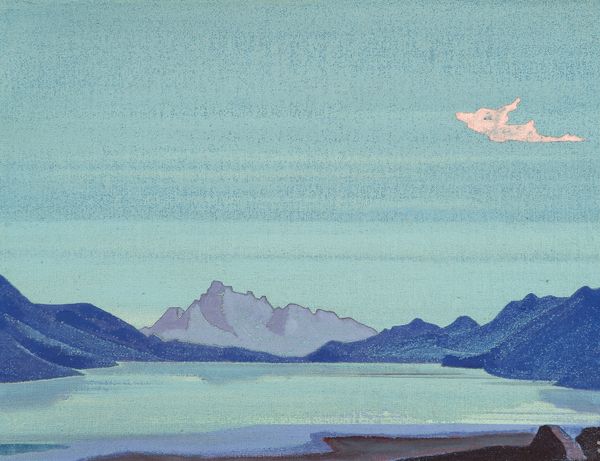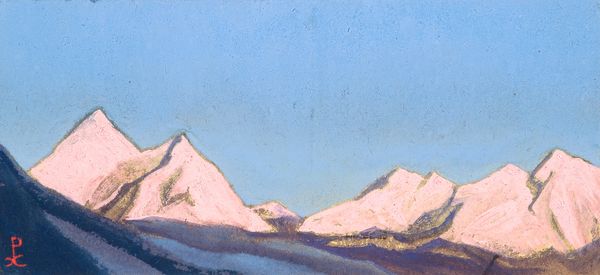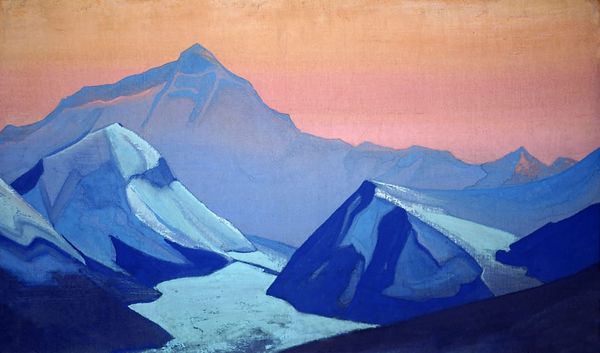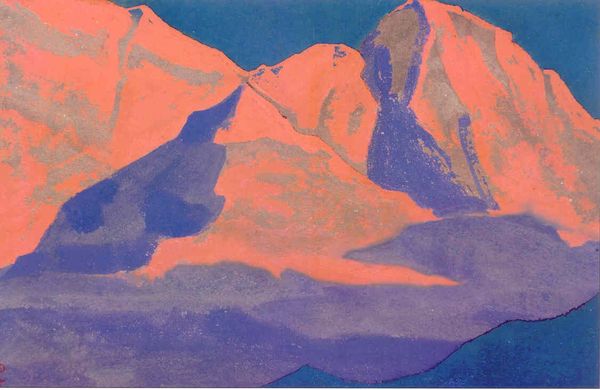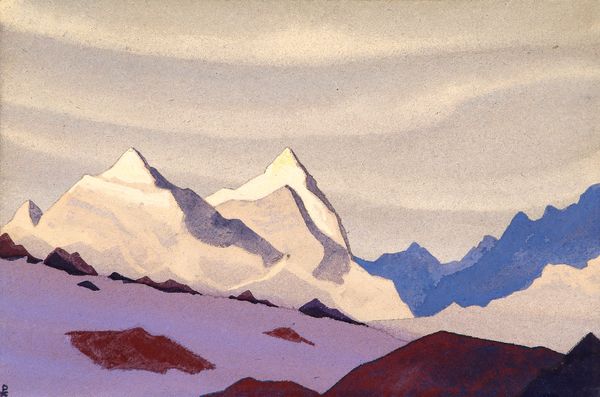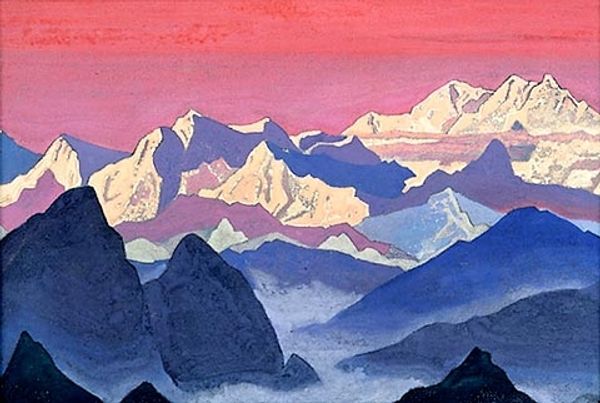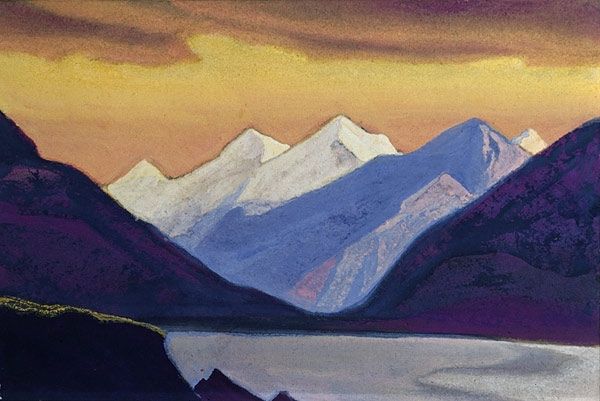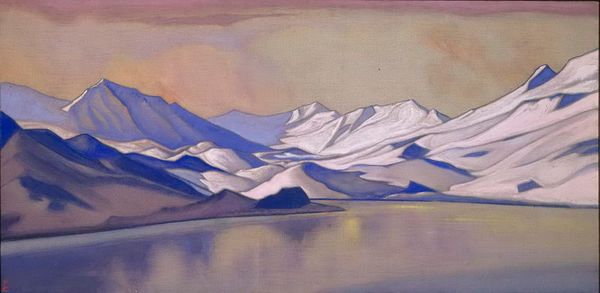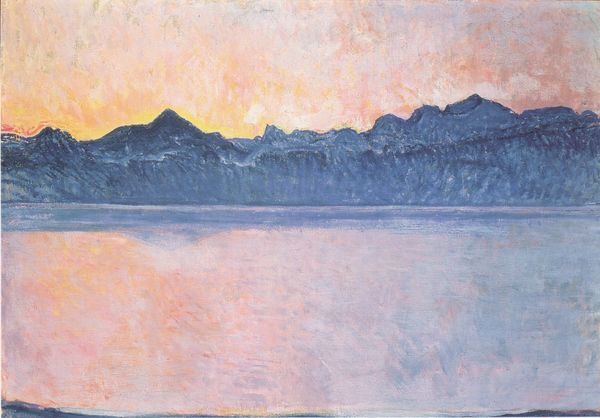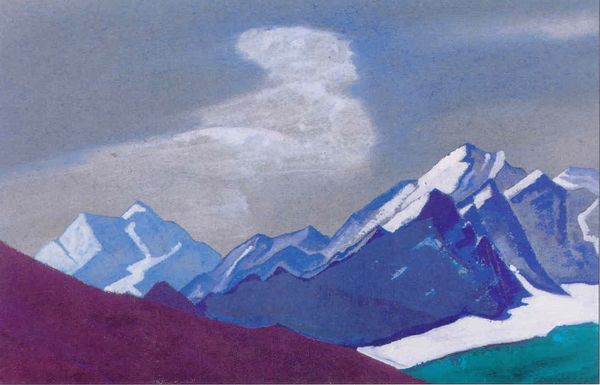
Himalayas (study). Holy Himalayas 1934
0:00
0:00
nicholasroerich
Nicholas Roerich Museum, New York City, NY, US
Dimensions: 25 x 36.5 cm
Copyright: Public domain
Editor: Here we have Nicholas Roerich's "Himalayas (study). Holy Himalayas" from 1934. It's a tempera painting, and the pervasive lilac and the layered mountains are really striking. The painting style feels kind of dreamy. What do you see in this piece? Curator: I see a deliberate construction, a building of meaning through material and process. Look at the tempera. Roerich's choice wasn’t arbitrary; it links him to a history of icon painting, associating the Himalayas, a space laden with spiritual significance, with a specific tradition of making. How does this relate to labor? Editor: Are you suggesting he is deliberately highlighting the labor, almost spiritual effort required in traditional icon creation by using tempera, even within a landscape? Curator: Precisely. Tempera requires careful preparation and application. Roerich isn’t just representing mountains, but invoking a whole chain of production, connecting the image to ideas of craft and the value we ascribe, or don't ascribe, to the production process in a rapidly industrializing world. What is consumed here, beyond the visual? Editor: So it's like, he’s using the medium itself to make us think about where the spiritual connection really lies: in the subject, or the labor infused into its making. That makes the title make a lot more sense, it's not *just* about the Himalayas. Curator: Exactly. He challenges us to look beyond the surface, beyond the romantic, to consider the materials and processes that create meaning. I hadn't thought of that potential challenge in the art’s spiritual intent.
